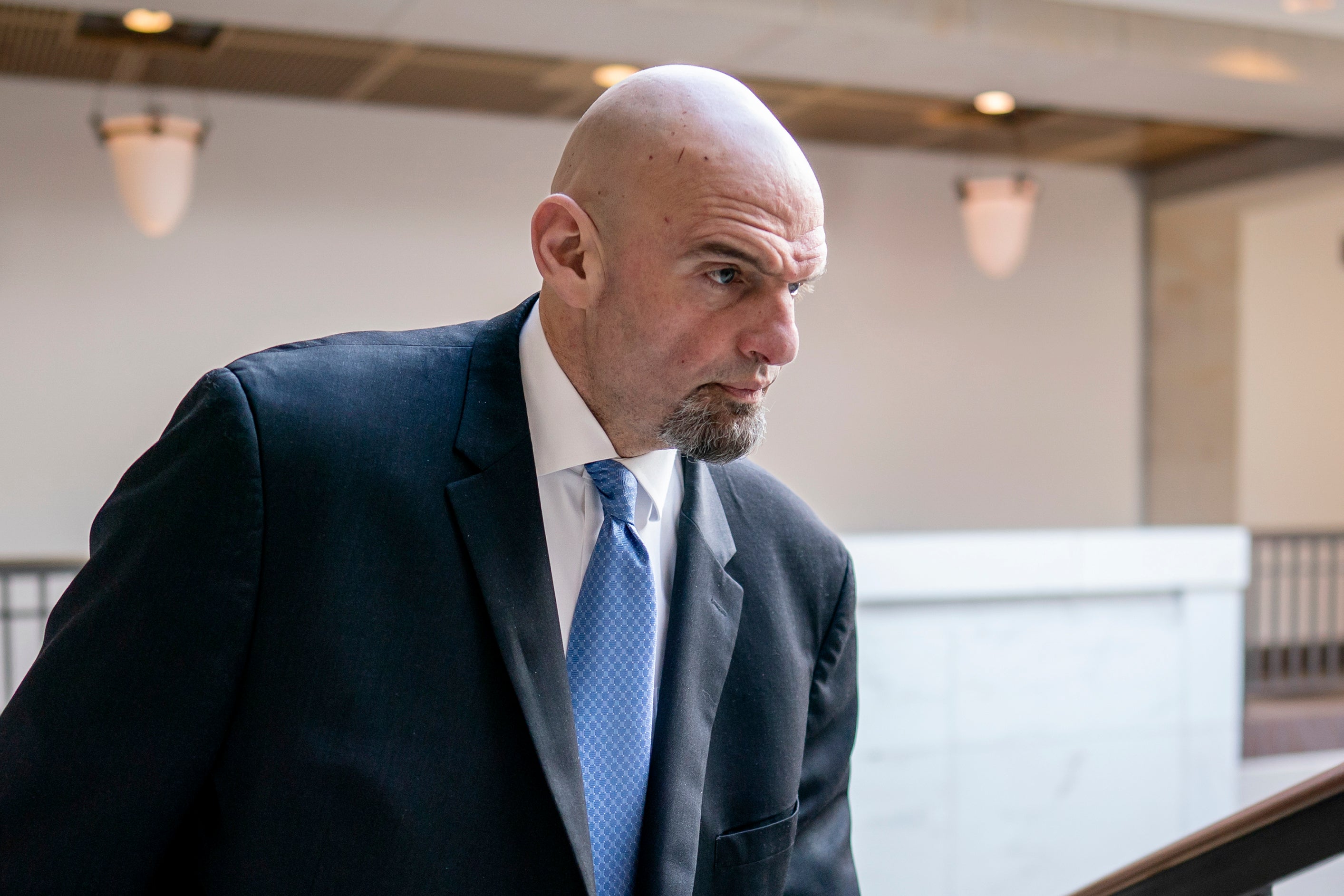Fetterman expected back 'soon,' but no certain timeline yet
The office of Pennsylvania Sen. John Fetterman says he's expected to return to the chamber soon after seeking inpatient treatment for clinical depression

Pennsylvania Sen. John Fetterman's office said Thursday that he is expected to return soon to the chamber, although Democratic leaders are giving no timeline five weeks after he sought inpatient treatment for clinical depression.
Fetterman, 53, was weeks into his service in Washington and still recovering from the aftereffects of the stroke he had last May during his campaign when he checked himself into Walter Reed National Military Medical Center on Feb. 15.
Aides said at the time that Fetterman had not been his usual self for weeks. He was withdrawn, showing a disinterest in talking, eating and the usual banter with aides. Post-stroke depression is common and treatable, doctors say.
Asked about when Fetterman might return, Senate Majority Leader Chuck Schumer, D-N.Y., said only that Fetterman is recuperating.
“We want to give him the space to recuperate," Schumer said at a Wednesday news conference. "He needs it, it’s fair, it’s right. There are other people in the Senate who have taken their time to recuperate but I’m confident he’s going to come back and be an outstanding and fine senator.”
A spokesperson said Fetterman is getting better and that the recovery is going well.
“He'll be back soon, at least over a week, but soon,” spokesperson Joe Calvello said Thursday.
Fetterman is receiving daily in-person briefings by chief of staff Adam Jentleson, Calvello said. The senator is reading the news and getting briefings, he said, while issuing statements through his office and sponsoring legislation. Aides are opening new regional offices in Pennsylvania.
After Fetterman checked in to Walter Reed, his office said he had experienced depression “off and on throughout his life,” but it had only become severe in recent weeks. The Capitol physician, Dr. Brian P. Monahan, recommended Fetterman's hospitalization after conducting an evaluation, his office said then.
In the meantime, Fetterman's aides and his wife, Gisele, have released photos of the senator smiling, being briefed or visiting with her and their three school-age children.
Fetterman had the stroke last May as he was campaigning in a three-way Democratic primary race. The stroke nearly killed him, he has said, and he had surgery to implant a pacemaker with a defibrillator to manage two heart conditions, atrial fibrillation and cardiomyopathy.
He won the primary while in the hospital and went on to beat GOP nominee Dr. Mehmet Oz in November, winning the campaign cycle's most expensive race. Fetterman's victory boosted Democrats to a 51-49 majority.
Fetterman was sworn in Jan. 3.
One of Fetterman’s main aftereffects from the stroke is auditory processing disorder, which can render someone unable to speak fluidly and quickly process spoken conversation into meaning. Fetterman uses devices in conversations, meetings and congressional hearings that transcribe spoken words in real time.
Post-stroke depression is also a common aftereffect, with 1 in 3 stroke patients experiencing it, and is treatable through antidepressant medication and counseling, doctors say.
___
Follow Marc Levy on Twitter: @timelywriter
Bookmark popover
Removed from bookmarks